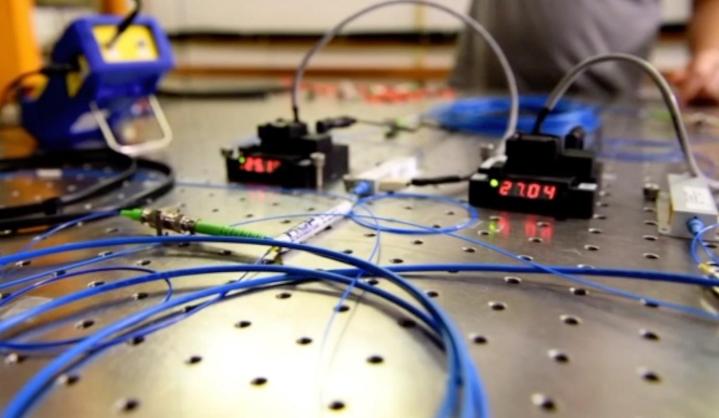
Information is entered into a system at one location. A switch is flicked. Instantly, that information appears at another location miles away. It sounds like science fiction, but it’s on its way to becoming a reality. This is quantum teleportation, and it could be the future of lightning-fast communications.
The approach relies on what is called quantum entanglement — where two particles are linked to each other in such a way that they share states. The state of one particle is reflected by the other particle and, here’s the amazing bit, that applies no matter how far apart the particles are. This means that pairs of entangled particles can be used to teleport information across large distances, effectively instantaneously.
But there’s a long way to go between understanding quantum entanglement in theory and using it for communications in practice. Recently though, researchers at Fermilab in Illinois were able to demonstrate sustained quantum teleportation over a distance with good fidelity. Both distance and fidelity and important for the development of usable communications technology.
The researchers were able to send quantum bits, called qubits, over 27 miles of fiber optic cables with fidelity of over 90%. The hardware used included special devices for the detection of single photons as well as off-the-shelf electronics equipment for fiber optic networking.
“We are very proud to have achieved this milestone on sustainable, high-performing and scalable quantum teleportation systems,” Maria Spiropulu, the Shang-Yi Ch’en professor of physics at Caltech and director of the IN-Q-NET research program, said in a statement. “The results will be further improved with system upgrades we are expecting to complete by the second quarter of 2021.”
The Department of Energy also recently expressed its interest in quantum teleportation, having shared its plans to create a national quantum internet based in the Chicago area. The demonstration at Fermilab shows how such a super-fast internet network could be created.
“With this demonstration, we’re beginning to lay the foundation for the construction of a Chicago-area metropolitan quantum network,” Spentzouris said.
The improvements shown in both fidelity and the data transfer distance are important milestones in creating the next generation of communications technology, which could eventually be used across the globe.
“We’re thrilled by these results,” said Fermilab scientist Panagiotis Spentzouris, head of the Fermilab quantum science program and one of the paper’s co-authors. “This is a key achievement on the way to building a technology that will redefine how we conduct global communication.”
The results are published in the journal PRX Quantum.



